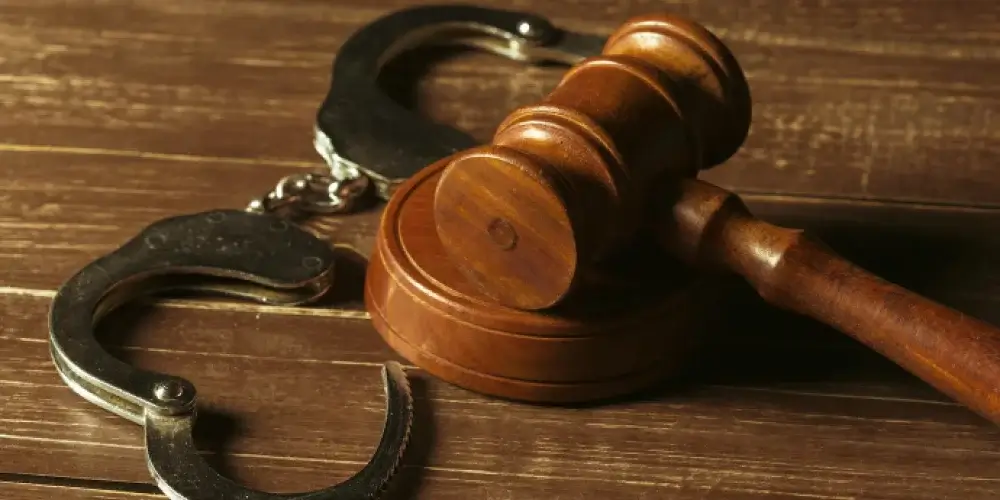

Types of Criminal Offenses: From Misdemeanors to Felonies
18/04/2024 Amanda C. 1305
Understanding the different types of criminal offenses is fundamental to navigating the legal landscape. Criminal offenses are generally categorized based on their severity, ranging from misdemeanors to felonies. Knowing the distinctions between these categories, the common offenses within them, and the legal principles that underpin criminal law can help individuals grasp the nuances of the criminal justice system.
Explanation of Different Types of Criminal Offenses: Misdemeanors and Felonies
Misdemeanors
There are 2 main types of criminal offenses, Misdemeanors are considered less severe offenses compared to felonies. They typically involve minor infractions that do not result in serious harm or substantial loss. Misdemeanors are usually punishable by:
-
Fines: Financial penalties are common for misdemeanor offenses.
-
Community Service: Offenders may be required to perform a certain number of hours of community service.
-
Probation: Instead of jail time, offenders may be placed under probation, which involves regular check-ins with a probation officer and adherence to specific conditions.
-
Short-term Incarceration: Jail sentences for misdemeanors are typically less than one year and are served in local or county jails.
Felonies
Felonies are more serious offenses that often involve significant harm or substantial loss. They carry harsher penalties, including:
-
Long-term Incarceration: Felony convictions can result in prison sentences of more than one year, often served in state or federal prisons.
-
Heavy Fines: Substantial financial penalties can accompany felony convictions.
-
Parole: After serving a portion of their prison sentence, offenders may be released on parole, during which they must comply with specific conditions.
-
Loss of Rights: Convicted felons may lose certain civil rights, such as the right to vote, own firearms, or hold public office.
The distinction between misdemeanors and felonies is crucial because it affects the legal procedures, the rights of the accused, and the severity of the consequences upon conviction.
Overview of Common Criminal Offenses
Theft
Theft involves the unlawful taking of someone else's property with the intent to permanently deprive them of it. It can range from minor shoplifting (a misdemeanor) to grand theft (a felony), depending on the value of the stolen property and the circumstances of the crime.
-
Petty Theft: Usually involves items of low value and is classified as a misdemeanor.
-
Grand Theft: Involves property of high value or specific types of property, such as vehicles, and is classified as a felony.
Assault
Assault is the act of intentionally causing physical harm or apprehension of harm to another person. The severity of the assault can influence whether it is charged as a misdemeanor or felony.
-
Simple Assault: Minor injuries or the threat of harm without actual physical contact typically fall under this category and are considered misdemeanors.
-
Aggravated Assault: Involves severe injury or the use of a deadly weapon and is classified as a felony.
Drug Crimes
Drug-related offenses encompass a wide range of activities involving controlled substances, such as possession, distribution, and manufacturing.
-
Possession: Holding a small amount of illegal drugs for personal use is often considered a misdemeanor.
-
Distribution and Trafficking: Involves the sale, transport, or large-scale distribution of drugs and is classified as a felony.
-
Manufacturing: The production of illegal drugs, such as methamphetamine, is a serious felony offense.
Other Common Offenses
-
DUI/DWI: Driving under the influence (DUI) or driving while intoxicated (DWI) can be classified as either a misdemeanor or felony, depending on factors like previous offenses and the presence of injuries or fatalities.
-
Domestic Violence: Acts of violence or abuse within domestic settings can range from misdemeanors to felonies based on the severity and frequency of the incidents.
-
Fraud: Engaging in deceptive practices for financial gain, such as credit card fraud or insurance fraud, is typically treated as a felony.
Importance of Understanding the Elements of a Crime and the Burden of Proof in Criminal Cases
Elements of a Crime
To secure a conviction in a criminal case, the prosecution must prove beyond a reasonable doubt that the defendant committed each element of the crime. The elements typically include:
-
Actus Reus (Guilty Act): The physical act or unlawful omission by the defendant.
-
Mens Reus (Guilty Mind): The intent or mental state of the defendant at the time of the act.
-
Causation: The defendant’s actions must have caused the harm or result specified in the offense.
-
Concurrence: The act and the intent must occur simultaneously.
Understanding these elements is essential for both the defense and the prosecution in constructing their arguments and presenting evidence.
Burden of Proof
The burden of proof in criminal cases rests with the prosecution, which must prove the defendant’s guilt beyond a reasonable doubt. This standard is the highest in the legal system, reflecting the principle that it is better for a guilty person to go free than for an innocent person to be wrongfully convicted.
-
Reasonable Doubt: This means that if there is any reasonable uncertainty regarding the defendant’s guilt, the jury must acquit. The defense's role is often to create reasonable doubt about the prosecution's case.
Constitutional Protections
The criminal justice system is designed to protect the rights of the accused through various constitutional safeguards, such as:
-
Right to a Fair Trial: Ensures that the defendant receives a fair and impartial trial.
-
Right to Counsel: Guarantees that defendants have access to legal representation.
-
Right Against Self-Incrimination: Protects defendants from being forced to testify against themselves.
-
Right to Due Process: Ensures that all legal proceedings are conducted fairly and in accordance with established rules and principles.
Understanding the types of criminal offenses and the legal principles that govern them is vital for anyone involved in or studying the criminal justice system. The distinction between misdemeanors and felonies affects everything from legal procedures to potential penalties. Common offenses like theft, assault, and drug crimes illustrate the breadth of criminal law and the varying degrees of severity associated with different acts.
Recognizing the elements of a crime and the burden of proof underscores the complexity of prosecuting and defending criminal cases. Constitutional protections further ensure that justice is fairly administered, safeguarding the rights of individuals throughout the legal process. By grasping these concepts, individuals can better navigate the criminal justice system, whether they are legal professionals, defendants, or informed citizens.
Recent Blogs
Building a Diversified Inves ...
26/01/2025 1860
Integrating AI and Machine L ...
24/01/2025 1420
Health Insurance Regulations ...
22/01/2025 2482
Recognizing Signs of Mental ...
20/01/2025 2499
Understanding Employers' Leg ...
18/01/2025 1434
Trending Blogs
Interest Rates: How They Aff ...
20/06/2024 12743
Client Retention: Building S ...
20/06/2024 10786
Introduction to Common Law: ...
21/06/2024 9857
Common Types of Criminal Charges
02/03/2024 9020
Corporate Finance Law: Raisi ...
04/06/2024 8755











